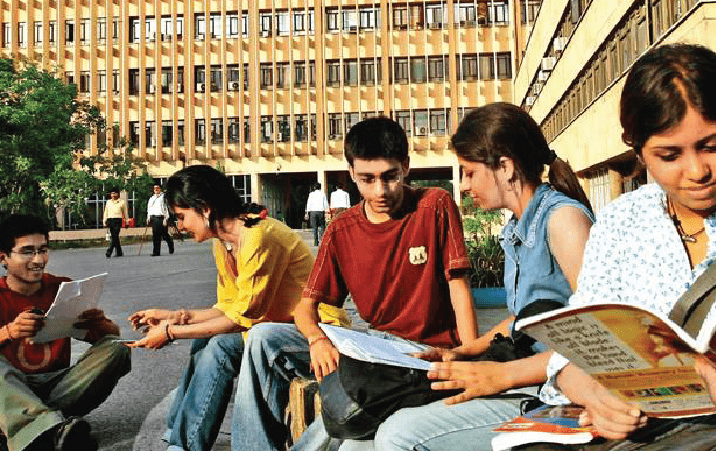We see a lot of turmoil in the teenage years. Not only does our body go through big changes, so does our behaviour. Adding to this stress is the question of what one has to do after school. While some are quite focused and clear about their career goals, most are not.
Many select engineering as the next step because of pressure and the perception that it provides “opportunities” in terms of jobs.
While there is no harm in keeping job prospect in mind while selecting the branch, we should not forget that the placement would only follow the successful completion of the four years of study. Hence, it is important to know what to expect in your undergraduate years. While the exact syllabus varies from college to college, some factors remain common,
As I am a chemical engineer, I wish to start with my own branch. When I chose to study it, I had no clue what the course entailed. From the name, I thought that it would have lots of chemistry. I am not alone; many people think the same. Even today, people mail me with chemistry problems. However, chemical engineering has very little to do with chemistry.
I often joke that the way Apple does not have vitamin C in their phones, chemical engineering also does not have chemistry. Instead, we have an understanding of how a chemical process plant functions. We study its constituting operations, such as how one component gets transferred from one material to another when they are brought in close contact in distillation columns.
We study how chemical reactions take place and what kind of reactor might one design to get the best quality product at the least cost. We learn about calculations that go into determining safety factors in a plant design. In short, we do a lot of mathematics and calculations to make sure a chemical process plant such as a petroleum refinery unit runs seamlessly. We also design equipment such as pressure vessels and heat exchangers that are often used in chemical industries.
While different branches have their own characteristics, one common thread is mathematics.
Mathematics is the language of engineers. We express the problems in forms of matrices, probabilities, and differential equations. In whichever branch you may choose, solving equations is probably common in every field of engineering.
My computer science colleague, Supratik Chakraborty, said, “Can we find limits of what can be computed? Are there things that can’t be computed, regardless of how powerful computers we have? How much time, space, and energy must it take to compute certain things? These are fundamental questions, not all of which have satisfactory answers even as of today. The theoretical part of computer science tries to understand and address these questions using mathematical principles.”
So, even for a field as computer science, its not just coding. The emphasis is on solving unanswered questions using maths. Similarly, civil engineering is not just about making bridges but also solving partial differential equations that govern the mechanical stress distribution in those bridges. Hence, having a knack for equations is a must for all fields of engineering.
Another common aspect is the ability to create and imagine. The job of an engineer is to solve real-life problems. Many times, there is more than one solution and we may not have enough computational ability even today to get a definite answer.
In such situations, one may need to take various approaches to tackle the problem computationally or to use common sense to choose one from many. Also, as engineers are creators too, one may need to imagine something that even does not exist, or, at least, does not exist in front of us. Hence, the ability to imagine, visualise, and plan is an integral part of engineering training. Unlike our school where every problem in book had a definite answer, engineering teaches us that life is fuzzy and that creativity is integral to navigating the unknown. It may sound simple, but I have seen students who feel quite uncomfortable to embrace this uncertainty.
Another interesting common aspect of all the branches is the continuous change or evolution that they have had in recent years. For example, metallurgy is not only about metals. It lovingly embraces polymers, ceramics and many other materials. That’s why now we call the branch as Metallurgy and Material Science. Similarly, mechanical engineering is not limited to gears and cantilevers but may include nuclear reactor design, energy, and climate.
At IIT Bombay, we see faculty members in civil engineering working on biology, and someone from metallurgy and material science working on water treatment. As professors, we have realised that real-life problems are not limited by the boundaries of streams. For example, designing a diagnostic kit may need inputs from biologists, chemists, material scientists, chemical engineers, electrical engineers and so on.
To design biomedical prosthetics, one may need inputs from specialists in artificial intelligence and machine learning. Keeping this multi-disciplinary need in mind, here at IITB, we are reducing the stream-specific course loads (which we call as core courses) and giving students the opportunity to pick the courses of their interest. They are free to create their own a la carte menu with the help of their faculty advisor.
As a result, students have the opportunity to get trained in subjects that interest them whether it is management, design, bio-science, psychology, and even social sciences. Hence, even if one has a strong inclination for a particular branch, say mechanical engineering, but gets an admission in chemical engineering, she should not be disheartened. If one is interested, one can train themselves in whatever topic in today’s world of open knowledge flow.
The writer is associate professor at the department of chemical engineering at IIT Bombay.
Courtesy : The Indian Express








